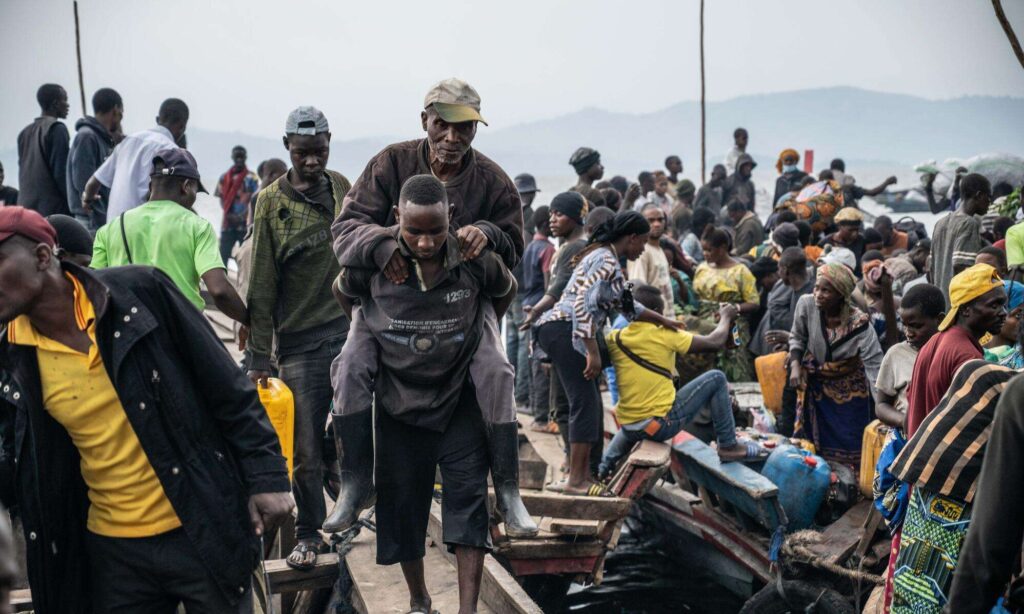Diplomatic relations between South Africa and Rwanda have deteriorated after South African President Cyril Ramaphosa accused the Rwanda-backed M23 rebel group of killing South African peacekeepers in eastern Democratic Republic of Congo (DRC).
The accusation came as the M23 rebels gained ground, seizing control of Goma, the largest city in eastern DRC. In response, South Africa issued a stern warning, declaring that any further attacks on its troops would be considered a “declaration of war.”
Rwanda’s President Paul Kagame countered the accusation, claiming that South Africa was part of a “belligerent force” involved in “offensive combat operations” to help the Congolese government fight against its own people. Meanwhile, AFP reported that M23 fighters pledged to continue their march towards DRC’s capital, Kinshasa, after making significant progress.
“We will continue the march of liberation all the way to Kinshasa,” Corneille Nangaa, leader of the coalition including M23, said in Goma. “We are in Goma and we will not leave until the issues for which we took up arms are addressed,” he added.
Since last week, 13 South African soldiers have been killed as the rebels advanced rapidly towards Goma, a strategic trading city near the Rwandan border. The conflict in eastern DRC has already claimed the lives of seven other South African soldiers in 2023, marking one of the deadliest recent incidents for the country’s peacekeeping forces.
South Africa and Rwanda have a history of strained relations. In 2014, South Africa expelled three Rwandan diplomats following an attack on the home of an exiled Rwandan dissident in Johannesburg. Rwanda retaliated by expelling six South African diplomats.
Although tensions seemed to ease after Ramaphosa’s visit to Rwanda in 2023 for the 30th anniversary of the Rwandan genocide, the latest flare-up follows the deaths of South African soldiers deployed to eastern DRC as part of a regional peacekeeping force.
The force, known as SAMIDRC, was primarily made up of South African troops and tasked with countering armed groups like M23 and restoring stability in the mineral-rich region. Ramaphosa’s comments on social media about the conflict sparked further diplomatic friction.
In a post, he stated he had discussed the situation with Kagame and both leaders agreed on the need for a ceasefire and the resumption of peace talks.
Ramaphosa also clarified that South African troops’ presence in DRC was not a “declaration of war,” a point that was reportedly misinterpreted by Rwanda’s leadership. South Africa’s Defence Minister Angie Motshekga also added that there had been no direct hostilities, but warned that firing over their heads could be viewed as an act of war.
Ramaphosa later took to social media, stating that M23 rebels and the Rwanda Defence Force militia were responsible for the deaths of South African soldiers.
In response, Kagame denied the accusations, insisting that the Rwanda Defence Force was not a militia and that the Congolese army (FARDC) had killed the soldiers, not the M23. Kagame also dismissed Ramaphosa’s statements as misleading and untrue.

The ongoing conflict in eastern DRC continues to strain regional relations, and efforts to broker peace have yet to yield a lasting resolution.
